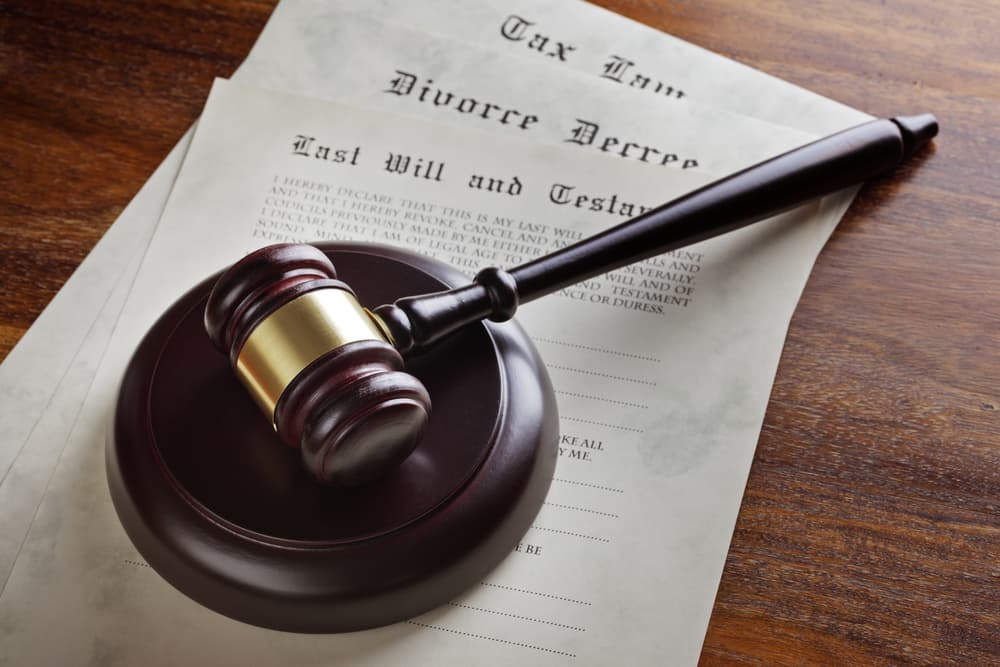
How Divorce Could Change Your Will
Divorce doesn’t just change your relationship status—it also affects your financial future in ways many don’t anticipate.
While dividing assets and settling debts might be at the forefront of your mind, one crucial area often overlooked is your will.
If your will was created while you were married, chances are it names your ex-spouse in significant roles, like beneficiary or executor.
Without updating it, your assets might not end up where you intended, or worse, decisions about your estate could fall into the wrong hands.
Let’s look at how divorce changes your will and what steps you must take to protect your wishes moving forward.
An experienced Kane County divorce lawyer, recognize the complexities divorce can bring, particularly its impact on your financial and legal matters.
The Effect of Divorce on Your Will

Divorce doesn’t automatically update your will but changes how certain provisions apply. In many states, finalizing your divorce cancels any references to your ex-spouse in your will.
Those designations may no longer hold if your will names your ex-spouse as a beneficiary or executor. However, the rest of your will remains in effect, which might leave gaps or lead to unintended outcomes in your estate plan.
For instance, if your will previously designated your ex-spouse to inherit significant assets, those assets might unintentionally pass to other beneficiaries or get caught up in legal disputes if your will lacks clarity.
Updating your will after a divorce ensures that your assets align with your current intentions rather than relying on outdated provisions that no longer reflect your wishes.
Key Elements of Your Will That May Need Updating
Divorce reshapes your life, and your will should reflect those changes to prevent conflicts or unintended outcomes.
Here’s a closer look at the key sections of your will that require attention after a divorce:
Changing beneficiaries
If your ex-spouse is listed as a primary beneficiary, update this immediately. Otherwise, your ex might still receive assets, especially if state laws don’t automatically revoke these provisions.
Updating executor designations
Your will’s executor manages your estate, so if your ex-spouse is in this role, it’s crucial to make a change. Assigning someone you trust—like a sibling or close friend—ensures your wishes are respected.
Guardianship of minor children
If you have minor children, your will may include provisions for their guardianship. Divorce changes family dynamics, so review these details carefully.
While your ex may retain custody rights, you might want to specify a backup guardian if something happens to both parents.
Revising Trusts and Other Estate Planning Documents
If you’ve set up trusts during your marriage, update them to reflect your current circumstances, including removing your ex-spouse as a trustee or beneficiary if that aligns with your intentions.
Reviewing these areas thoroughly after a divorce helps secure your assets and protect your loved ones, aligning your estate plan with your new reality.
The Consequences of Not Updating Your Will After a Divorce
Failing to update your will after a divorce has serious and often unintended consequences. Many people assume that their divorce alone is enough to remove an ex-spouse from their will, but that’s not always the case.
If your will still names your ex-spouse as a beneficiary or executor, they might legally inherit your assets or control your estate despite your changed intentions.
In some states, divorce automatically revokes provisions involving an ex-spouse, but this isn’t universal. If you relocate or if your state doesn’t have such laws, your ex could still receive a significant portion of your estate.
This creates confusion and potential disputes among family members who may contest the validity of your outdated will.
If you haven’t updated your guardianship designations, your ex-spouse might still have a say in decisions about your minor children, even if that’s not what you intended.
The same applies to trusts, powers of attorney, and healthcare directives that may still list your ex-spouse as having control over critical matters.
Protecting your wishes means taking proactive steps to ensure your will and related documents reflect your current circumstances.
When Should You Update Your Will After a Divorce?

Review your will and related documents to reflect your new circumstances as soon as your divorce decree is issued.
Divorce changes many legal and financial aspects of your life, and delaying updates to your estate plan could leave your assets vulnerable to unintended outcomes.
Waiting too long to make these changes could lead to confusion if something happens to you. For instance, if your ex-spouse is still listed as a beneficiary or executor, they could inadvertently gain control over your estate.
Even if state laws might automatically revoke certain provisions involving your ex, it’s safer to update your will proactively to ensure no ambiguities.
While updating your will, review other estate planning documents like trusts, life insurance policies, and retirement accounts to make sure your entire financial picture aligns with your current wishes.
Taking prompt action avoids complications and gives you peace of mind, knowing that your estate plan accurately reflects your intentions.
Working with a Divorce Attorney
After a divorce, updating your will and other estate documents is crucial to protecting your financial future.
While Manassa Law focuses on family law, consulting with an experienced attorney is still essential to ensure your interests are properly safeguarded.
As family law attorneys, we understand the complexities that divorce brings, especially regarding the impact on your financial and legal affairs.
Although we don’t handle estate planning directly, we guide you in the right direction. We connect you with trusted estate planning professionals who will help you revise your will, update beneficiary designations, and adjust any other relevant documents to reflect your new circumstances.
By working with the right legal professionals, you ensure that your wishes are respected and that your assets are secured according to your current situation.
At Manassa Law, we support you through every step of the divorce process, ensuring that your post-divorce life is as smooth as possible.
- Income Disparity and Child Support in Illinois - January 15, 2026
- How Is Child Custody Determined in Illinois? - January 14, 2026
- How Do I Adjust Time Sharing to Accommodate New Circumstances? - January 13, 2026
